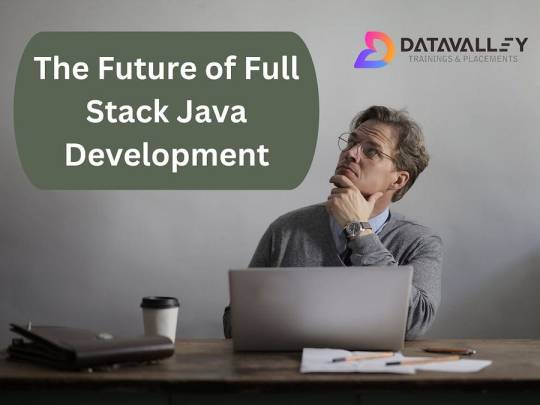#data engineering
Explore tagged Tumblr posts
Text

absolutely unintelligeable meme I made during bootcamp lecture this morning
#coding#data engineering#transformers#starscream#star schema#data normalisation#so the lecture was on something called 'star schema' which is about denormalising some of your data#(normalising data is a data thing separate meaning from the general/social(?) use of the word#it has to do with how you're splitting up your database into different tables)#and our lecturers always try and come up with a joke/pun related to the day's subject for their zoom link message in slack#and our lecturer today was tryna come up with a transformer pun because there's a transformer called starscream (-> bc star schemas)#(cause apparently he's a transformers nerd)#but gave up in his message so I googled the character and found these to be the first two results on google images and I was like#this is a meme template if I've ever seen one and proceeded to make this meme after lecture#I'm a big fan of denormalisation both in the data sense and in the staying weird sense
24 notes
·
View notes
Text
FOB: I only think in the form of crunching numbers
Me, a Data Engineer: Is... is he talking about me... 🤓
FOB: In hotel rooms, collecting Page Six lovers
Me, a Data Engineer in a monogamous relationship: Ah, nvmd 🥴
#fall out boy#i know it is cringe but that is how i felt#millennial core#patrick stump#pete wentz#thnks fr th mmrs#data engineering#joe trohman#andy hurley#fall out boy shitposting
21 notes
·
View notes
Text
🚀 Exploring Kafka: Scenario-Based Questions 📊
Dear community, As Kafka continues to shape modern data architectures, it's crucial for professionals to delve into scenario-based questions to deepen their understanding and application. Whether you're a seasoned Kafka developer or just starting out, here are some key scenarios to ponder: 1️⃣ **Scaling Challenges**: How would you design a Kafka cluster to handle a sudden surge in incoming data without compromising latency? 2️⃣ **Fault Tolerance**: Describe the steps you would take to ensure high availability in a Kafka setup, considering both hardware and software failures. 3️⃣ **Performance Tuning**: What metrics would you monitor to optimize Kafka producer and consumer performance in a high-throughput environment? 4️⃣ **Security Measures**: How do you secure Kafka clusters against unauthorized access and data breaches? What are some best practices? 5️⃣ **Integration with Ecosystem**: Discuss a real-world scenario where Kafka is integrated with other technologies like Spark, Hadoop, or Elasticsearch. What challenges did you face and how did you overcome them? Follow : https://algo2ace.com/kafka-stream-scenario-based-interview-questions/
#Kafka #BigData #DataEngineering #TechQuestions #ApacheKafka #BigData #Interview
2 notes
·
View notes
Text
From Support to Data Science and Analytics: My Journey at Automattic
“Is it possible to transform a role in customer support into a data science career?” This question, which once seemed like a distant dream, became my career blueprint at Automattic. My journey from a Happiness Engineer in September 2014 to a data wrangler today is a tale of continuous evolution, learning, and adaptation. Starting in the dynamic world of customer support with team “Hermes” (an…

View On WordPress
5 notes
·
View notes
Text
Navigating the Data Landscape: A Deep Dive into ScholarNest's Corporate Training

In the ever-evolving realm of data, mastering the intricacies of data engineering and PySpark is paramount for professionals seeking a competitive edge. ScholarNest's Corporate Training offers an immersive experience, providing a deep dive into the dynamic world of data engineering and PySpark.
Unlocking Data Engineering Excellence
Embark on a journey to become a proficient data engineer with ScholarNest's specialized courses. Our Data Engineering Certification program is meticulously crafted to equip you with the skills needed to design, build, and maintain scalable data systems. From understanding data architecture to implementing robust solutions, our curriculum covers the entire spectrum of data engineering.
Pioneering PySpark Proficiency
Navigate the complexities of data processing with PySpark, a powerful Apache Spark library. ScholarNest's PySpark course, hailed as one of the best online, caters to both beginners and advanced learners. Explore the full potential of PySpark through hands-on projects, gaining practical insights that can be applied directly in real-world scenarios.
Azure Databricks Mastery
As part of our commitment to offering the best, our courses delve into Azure Databricks learning. Azure Databricks, seamlessly integrated with Azure services, is a pivotal tool in the modern data landscape. ScholarNest ensures that you not only understand its functionalities but also leverage it effectively to solve complex data challenges.
Tailored for Corporate Success
ScholarNest's Corporate Training goes beyond generic courses. We tailor our programs to meet the specific needs of corporate environments, ensuring that the skills acquired align with industry demands. Whether you are aiming for data engineering excellence or mastering PySpark, our courses provide a roadmap for success.
Why Choose ScholarNest?
Best PySpark Course Online: Our PySpark courses are recognized for their quality and depth.
Expert Instructors: Learn from industry professionals with hands-on experience.
Comprehensive Curriculum: Covering everything from fundamentals to advanced techniques.
Real-world Application: Practical projects and case studies for hands-on experience.
Flexibility: Choose courses that suit your level, from beginner to advanced.
Navigate the data landscape with confidence through ScholarNest's Corporate Training. Enrol now to embark on a learning journey that not only enhances your skills but also propels your career forward in the rapidly evolving field of data engineering and PySpark.
#data engineering#pyspark#databricks#azure data engineer training#apache spark#databricks cloud#big data#dataanalytics#data engineer#pyspark course#databricks course training#pyspark training
3 notes
·
View notes
Text

From sensors to systems- data engineering unlocks the full potential of the Internet of Things (IoT) ecosystem. Mark a revolution as you explore the core interconnection of the two giants.
Discover details here https://bit.ly/3FasDZ2
0 notes
Text
Why Data Teams Waste 70% of Their Week—and How to Fix It

Commercial data providers vow speed and scale. Behind the scenes, data teams find themselves drowning in work they never volunteered for. Rather than creating systems or enhancing strategy, they're re-processing files, debugging workflows, and babysitting fragile pipelines. Week after week, 70% of their time vanishes into operational black holes.
The actual problem is not so much the amount of data—it's the friction. Patching and manual processes consume the workday, with barely enough bandwidth for innovation or strategic initiatives.
Where the Week Disappears
Having worked with dozens of data-oriented companies, one trend is unmistakable: most time is consumed making data ready, rather than actually providing it. These include:
Reprocessing files because of small upstream adjustments
Reformatting outputs to satisfy many partner formats
Bailing out busted logic in ad-hoc pipelines
Manually checking or enhancing datasets
Responding to internal queries that depend on flawlessly clean data
Even as pipelines themselves seem to work, analysts and engineers tend to end up manually pushing tasks over the goal line. Over time, this continuous backstop role spirals out into a full-time job.
The Hidden Labor of Every Pipeline
Most teams underappreciate how much coordination and elbow grease lies buried in every workflow. Data doesn't simply move. It needs to be interpreted, cleansed, validated, standardized, and made available—usually by hand.
They're not fundamental technical issues. They're operational inefficiencies. Lacking automation over the entire data lifecycle, engineers are relegated to responding rather than creating. Time is spent patching scripts, fixing schema mismatches, and speeding toward internal SLAs.
The outcome? A team overwhelmed with low-value work under unrealistic timelines.
Solving the Problem with Automation
Forge AI Data Operations was designed for this very problem. Its purpose is to take the friction out of slowing down delivery and burning out teams. It automates each phase of the data life cycle—from ingestion and transformation to validation, enrichment, and eventual delivery.
Here's what it does automatically:
Standardizes diverse inputs
Applies schema mapping and formatting rules in real time
Validates, deduplicates, and enriches datasets on the fly
Packages and delivers clean data where it needs to go
Tracks each step for full transparency and compliance
This is not about speed. It's about providing data teams with time and mental room to concentrate on what counts.
Why This Matters
A data team's real value comes from architecture, systems design, and facilitating fast, data-driven decision-making. Not from massaging inputs or hunting down mistakes.
When 70% of the workweek is spent on grunt work, growth is stunted. Recruitment becomes a band-aid, not a solution. Innovation grinds to a halt. Automation is never about reducing jobs—it's about freeing up space for high-impact work.
Reclaim the Workweek
Your team's most precious resource is time. Forge AI enables you to free yourself from wasting it on repetitive tasks. The reward? Quicker turnaround, less error, happier clients, and space to expand—without expanding headcount.
Witness how Forge AI Data Operations can return your team's week back—and at last prioritize what actually moves your business ahead.
#Data Operations#Data Automation#Data Engineering#Workflow Optimization#Commercial Data Providers#Data Pipeline Management#Time Management for Data Teams
1 note
·
View note
Text
Revolutionizing Recruitment: How Dr. Krishna Bharggav’s Taurus AI is Changing India’s Job Market
In a bold step toward redefining how India accesses employment, Browsejobs.in unveiled Taurus AI—India’s first fully WhatsApp-based AI job search assistant. The launch, which took place during the National Educational Expo & Job Fair 2025, marks a major shift toward inclusive, frictionless, and tech-enabled hiring for the masses.
While thousands of job seekers benefited from the on-ground event, the real innovation lies in what Taurus AI promises: a complete digital job journey through a simple WhatsApp chat.
💬 Taurus AI: Smart. Simple. On WhatsApp.
No apps. No logins. No intimidating interfaces.
Taurus AI is designed for India’s diverse job seekers—from metro graduates to rural aspirants and mid-career professionals. The platform brings career opportunities to users’ fingertips with nothing more than WhatsApp.
Key Features:
📄 AI-generated resumes within seconds
🧭 Personalized job matches using smart profiling
📅 Auto-interview scheduling with verified companies
🔔 Daily job alerts via WhatsApp
💼 End-to-end hiring experience—with zero complexity
From resume building to real-time placement, Taurus acts as an AI-driven employment companion, built especially for Tier 2/3 cities, first-time job seekers, and non-tech-savvy users.
“We wanted to remove every possible barrier to employment,” explains Dr. Krishna Bharggav, the visionary behind Taurus AI. “If job search feels like texting a friend, we’ve done our job right.”
🚀 The Mind Behind the Machine: Dr. Krishna Bharggav
A distinguished technologist, educator, and serial investor, Dr. Krishna Bharggav is the Founder & CEO of Browsejobs.in and the architect of Taurus AI. With over 15 years of global experience in data science and blockchain, his expertise extends across consulting, education, and innovation.
His accomplishments include:
🧠 PhD in Data Science from the University of Geneva
🎓 Alumni of London Business School and Oxford University (Blockchain & Entrepreneurship)
🔗 Founding Member, London Blockchain Foundation
🎤 TEDx speaker & organiser
👨🏫 Former Python & ML trainer at a prestigious UK university
💼 Investor in several tech and agritech startups across India and Europe
📈 Leader of a team of experts in data science, blockchain, and AI-driven recruitment solutions
Under his leadership, Browsejobs.in has grown into one of India's most trusted job and upskilling platforms—empowering over 100,000 learners and professionals, especially from underserved communities.
“Technology should uplift, not intimidate,” says Dr. Bharggav. “That’s the philosophy behind every product we build.”
🌍 Taurus AI: Building for Bharat, Scaling for the World
The launch of Taurus AI is more than a product milestone—it's a strategic blueprint for inclusive digital transformation. With a user-first design and conversational AI at its core, Taurus is already being hailed as a breakthrough for making employment accessible without digital literacy hurdles.
After a successful debut in Bengaluru, Browsejobs.in is preparing to scale Taurus AI across India, combining grassroots outreach with scalable tech.
About Taurus AI
Taurus AI is India’s first fully WhatsApp-integrated job search assistant developed by Browsejobs.in. It allows users to create resumes, get job matches, schedule interviews, and receive career support—entirely through WhatsApp.
About Dr. Krishna Bharggav
Dr. Krishna Bharggav is a global tech leader, data scientist, TEDx speaker, and social entrepreneur. He holds a PhD in Data Science and has trained aspiring professionals in business analytics, machine learning, and blockchain across the UK and India. As the CEO of Browsejobs.in, he leads innovation in employment tech with a vision to democratize hiring in India.
About Browsejobs.in
Browsejobs.in is a next-gen job and upskilling platform committed to transforming how India works. With a strong recruiter network and over 1 lakh learners, it bridges the gap between talent and opportunity through smart tech, AI tools, and inclusive outreach.
1 note
·
View note
Text
Best Data Engineering Service Providers in India — Prescience Decision Solutions
Prescience Decision Solutions stands out as a premier data engineering service provider in India, offering comprehensive solutions that empower businesses to harness the full potential of their data. Headquartered in Bengaluru, Prescience has built a reputation for delivering robust data infrastructures, advanced analytics, and AI-driven insights to clients across various industries. To know more in detail, click on the given link:
youtube
#data#data management#data analytics#india#data science#artificial intelligence#data engineering#Youtube
0 notes
Text
Data Excellence | Data Engineering
At Techwave, we enable businesses to turn data into a strategic advantage by simplifying complexity and aligning data strategies with business goals. Our expertise in data engineering and AI drives informed decision-making, fosters innovation, and helps businesses stay ahead in a competitive landscape. By seamlessly integrating AI into your data strategy, we transform data into a powerful catalyst for sustained growth and actionable insights, empowering businesses to thrive in the digital era. Let us help you transform your data into a powerful asset for success in a data-first world.
0 notes
Text
The Future of Full Stack Java Development

Full-stack developers, also known as “jack of all trades,” are in high demand in India. They are capable of carrying out the duties of numerous professionals. They earn good money and have many job opportunities with rewarding experiences because of their diverse skills. Full-stack Java programming has a bright future because its popularity is growing and will continue to grow in the coming years.
It’s well known that full-stack developers are proficient in both server-side and client-side programming. They are the professionals who carry out the responsibilities of backend and frontend developers. Despite not always being regarded as specialists, their abilities enable them to handle development tasks with ease. All firms look forward to having a brilliant full-stack developer as a future developer for a number of reasons. They handle a variety of technologies, which enables them to manage more project facets than the typical coder.
An experienced web developer who primarily works with Java programming is known as a Java full-stack developer. The front end, back end, and database layer are the three levels of code that these web developers build. The web development teams are frequently led by full-stack Java engineers, who also assist in updating and designing new websites. Because there is a great demand for Java full-stack developers. Many institutions have seized the opportunity by providing well-thought-out Java full-stack developer courses. You may study full-stack development quickly and become an expert in the area with the aid of these courses.
Java Full Stack Development by Datavalley
100% Placement Assistance
Duration: 3 Months (500+ hours)
Mode: Online/Offline
Let’s look into the future opportunities for full-stack Java professionals in India.
4 things that will Expand the Future Purpose of Java Full-Stack Developers
The Role of a Full-Stack Developer
Full-stack developers work on numerous tasks at once. They need to be extremely talented and knowledgeable in both front-end and back-end programming languages for this. JavaScript, CSS, HTML, and other frontend programming languages are essential. When creating new websites or modifying old ones, Java is a key programming language used by Java full-stack developers. However, backend programming languages consist of .Net, PHP, and Python depending on the projects. The full stack developers are distinguished from other developers by their proficiency and understanding of programming languages. With the availability of the finest Java full stack developer training, students may now easily master a frontend programming language like Java. The full-stack developer is more valuable and in demand when they are knowledgeable in multiple programming languages.
Responsibilities of a Full-Stack Developer
Functional databases are developed by full-stack developers. It creates aesthetically pleasing frontend designs that improve user experience and support the backend. The entire web-to-web architecture is under the control of these full-stack developers. They are also in charge of consistently maintaining and updating the software as needed. The full-stack developers bear the responsibility of overseeing a software project from its inception to its finalized product.
In the end, these full-stack developers also satisfy client and technical needs. Therefore, having a single, adaptable person do many tasks puts them in high demand and increases their potential for success in the technology field. Through extensively developed modules that expand their future scope, the Java full-stack developer course equips students with the skills necessary to take on these tasks.
The full-stack developer salary range
Full-stack developers are among the highest-paid workers in the software industry. In India, the average salary for a full-stack developer is 9.5 lakhs per annum. The elements that determine income typically include experience, location of the position, company strength, and other considerations. A highly skilled and adaptable full-stack developer makes between 16 and 20 lakhs per annum. Full-stack engineers get paid a lot because of their extensive skills, they can handle the tasks of two or three other developers at once.
By fostering the growth of small teams, preventing misunderstandings, and cutting the brand’s operating expenses, these full-stack developers perform remarkable work. Students who take the Java full-stack developer course are better equipped to become versatile full-stack developers, which will increase their demand currently as well as in the future in the industry.
Job Opportunities of Java Full Stack Developers
The full-stack developers are knowledgeable professionals with a wide range of technological skills. These competent workers are conversant with numerous stacks, including MEAN and LAMP, and are capable of handling more tasks than a typical developer. They are skilled experts with a wealth of opportunities due to their extensive understanding of several programming languages.
Full-stack developers are in high demand because they can work on a variety of projects and meet the needs of many companies. The full-stack Java developer course helps students build this adaptability so they can eventually become the first choice for brands searching for high-end developers.
As a result, these are a few key factors improving the future prospects of Java Full Stack developers in India. They are vibrant professionals who are in high demand due to their diverse skill set and experience, and they are growing steadily. The Java full stack developer course can help students hone their knowledge and abilities to succeed in this industry.
Datavalley’s Full Stack Java Developer course can help you start a promising career in full stack development. Enroll today to gain the expertise and knowledge you need to succeed.
Attend Free Bootcamps
Looking to supercharge your Java skills and become a full-stack Java developer? Look no further than Datavalley’s Java Full Stack Developer bootcamp. This is your chance to take your career to the next level by enhancing your expertise.
Key points about Bootcamps:
It is completely free, and there is no obligation to complete the entire course.
20 hours total, two hours daily for two weeks.
Gain hands-on experience with tools and projects.
Explore and decide if the field or career is right for you.
Complete a mini-project.
Earn a certificate to show on your profile.
No commitment is required after bootcamp.
Take another bootcamp if you are unsure about your track.

#dataexperts#datavalley#data engineering#data analytics#dataexcellence#business intelligence#data science#power bi#data analytics course#data science course#java developers#java full stack bootcamp#java full stack training#java full stack course#java full stack developer
2 notes
·
View notes
Text
In today's digital landscape, data is a vital business asset. This presentation explores how Data Engineering Services transform raw, chaotic data into actionable insights. Learn why modern businesses must embrace scalable, AI-ready data solutions to drive smarter decisions, enhance customer experiences, ensure compliance, and fuel innovation through advanced technologies.
#Data Engineering Service#Data Visualization Services#Data Analytics and Visualization Services#Data Analysis Service Providers#Data Engineering
0 notes
Text
How Modern Data Engineering Powers Scalable, Real-Time Decision-Making
In today's world, driven by technology, businesses have evolved further and do not want to analyze data from the past. Everything from e-commerce websites providing real-time suggestions to banks verifying transactions in under a second, everything is now done in a matter of seconds. Why has this change taken place? The modern age of data engineering involves software development, data architecture, and cloud infrastructure on a scalable level. It empowers organizations to convert massive, fast-moving data streams into real-time insights.
From Batch to Real-Time: A Shift in Data Mindset
Traditional data systems relied on batch processing, in which data was collected and analyzed after certain periods of time. This led to lagging behind in a fast-paced world, as insights would be outdated and accuracy would be questionable. Ultra-fast streaming technologies such as Apache Kafka, Apache Flink, and Spark Streaming now enable engineers to create pipelines that help ingest, clean, and deliver insights in an instant. This modern-day engineering technique shifts the paradigm of outdated processes and is crucial for fast-paced companies in logistics, e-commerce, relevancy, and fintech.
Building Resilient, Scalable Data Pipelines
Modern data engineering focuses on the construction of thoroughly monitored, fault-tolerant data pipelines. These pipelines are capable of scaling effortlessly to higher volumes of data and are built to accommodate schema changes, data anomalies, and unexpected traffic spikes. Cloud-native tools like AWS Glue and Google Cloud Dataflow with Snowflake Data Sharing enable data sharing and integration scaling without limits across platforms. These tools make it possible to create unified data flows that power dashboards, alerts, and machine learning models instantaneously.
Role of Data Engineering in Real-Time Analytics
Here is where these Data Engineering Services make a difference. At this point, companies providing these services possess considerable technical expertise and can assist an organization in designing modern data architectures in modern frameworks aligned with their business objectives. From establishing real-time ETL pipelines to infrastructure handling, these services guarantee that your data stack is efficient and flexible in terms of cost. Companies can now direct their attention to new ideas and creativity rather than the endless cycle of data management patterns.
Data Quality, Observability, and Trust
Real-time decision-making depends on the quality of the data that powers it. Modern data engineering integrates practices like data observability, automated anomaly detection, and lineage tracking. These ensure that data within the systems is clean and consistent and can be traced. With tools like Great Expectations, Monte Carlo, and dbt, engineers can set up proactive alerts and validations to mitigate issues that could affect economic outcomes. This trust in data quality enables timely, precise, and reliable decisions.
The Power of Cloud-Native Architecture
Modern data engineering encompasses AWS, Azure, and Google Cloud. They provide serverless processing, autoscaling, real-time analytics tools, and other services that reduce infrastructure expenditure. Cloud-native services allow companies to perform data processing, as well as querying, on exceptionally large datasets instantly. For example, with Lambda functions, data can be transformed. With BigQuery, it can be analyzed in real-time. This allows rapid innovation, swift implementation, and significant long-term cost savings.
Strategic Impact: Driving Business Growth
Real-time data systems are providing organizations with tangible benefits such as customer engagement, operational efficiency, risk mitigation, and faster innovation cycles. To achieve these objectives, many enterprises now opt for data strategy consulting, which aligns their data initiatives to the broader business objectives. These consulting firms enable organizations to define the right KPIs, select appropriate tools, and develop a long-term roadmap to achieve desired levels of data maturity. By this, organizations can now make smarter, faster, and more confident decisions.
Conclusion
Investing in modern data engineering is more than an upgrade of technology — it's a shift towards a strategic approach of enabling agility in business processes. With the adoption of scalable architectures, stream processing, and expert services, the true value of organizational data can be attained. This ensures that whether it is customer behavior tracking, operational optimization, or trend prediction, data engineering places you a step ahead of changes before they happen, instead of just reacting to changes.
1 note
·
View note
Text
Why Data Engineering Matters for Modern Business Success
Read about the benefits of data engineering in modern enterprises, like optimizing data pipelines, enhancing analytics, and making smart decisions.
0 notes

